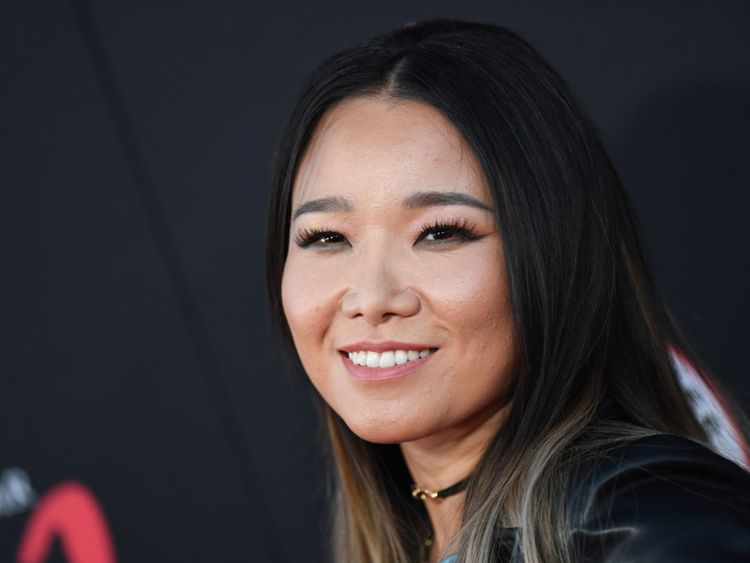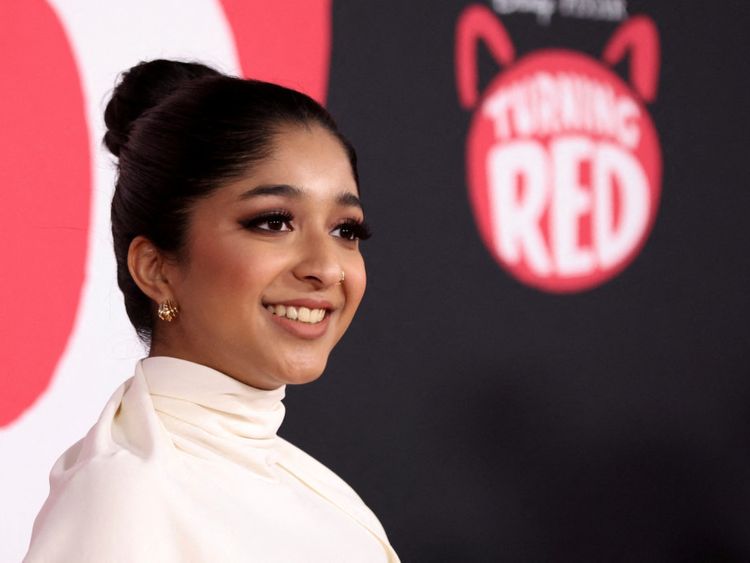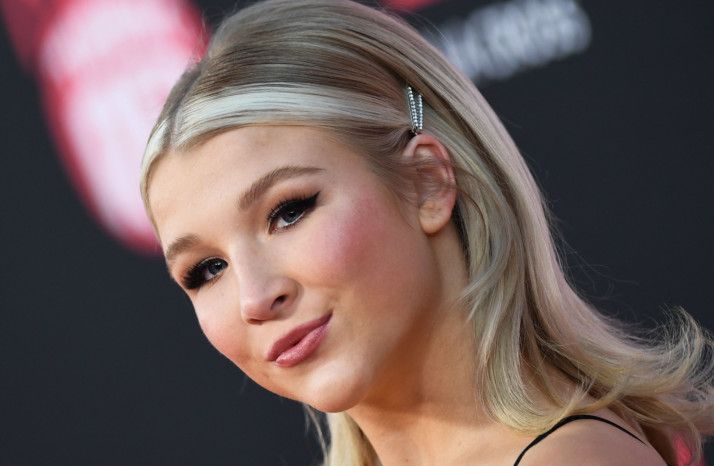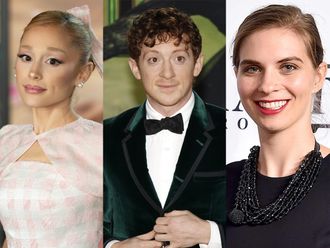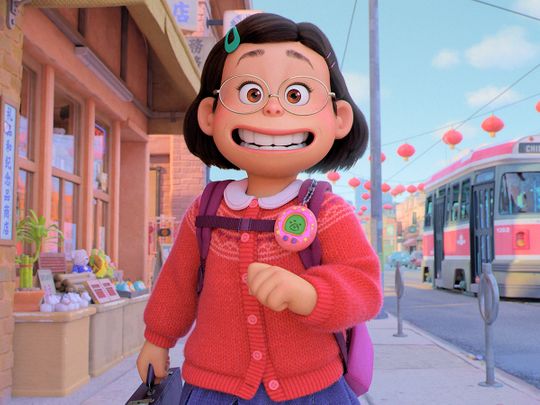
Chinese-Canadian animator Domee Shi has made a habit of making history and breaking glass ceilings during the course of her Pixar career, which started with an internship in 2011 when she was 22.
Shi was the first woman to direct a Pixar short — those silent, mini-movies that play before the main feature. Her quirky little film from 2018 called ‘Bao’ was about a lonely Chinese Canadian woman whose home-cooked bao comes to life and keeps her company as she copes with empty nest syndrome. It won Shi an Oscar for Best Animated Short Film at the 91st Academy Awards and during her acceptance speech the young animator used her platform to reach out to “all of the nerdy girls out there who hide behind their sketchbooks.”
“Don’t be afraid to tell your story to the world. You are probably going to freak people out, but you’ll probably connect with them too,” she said.
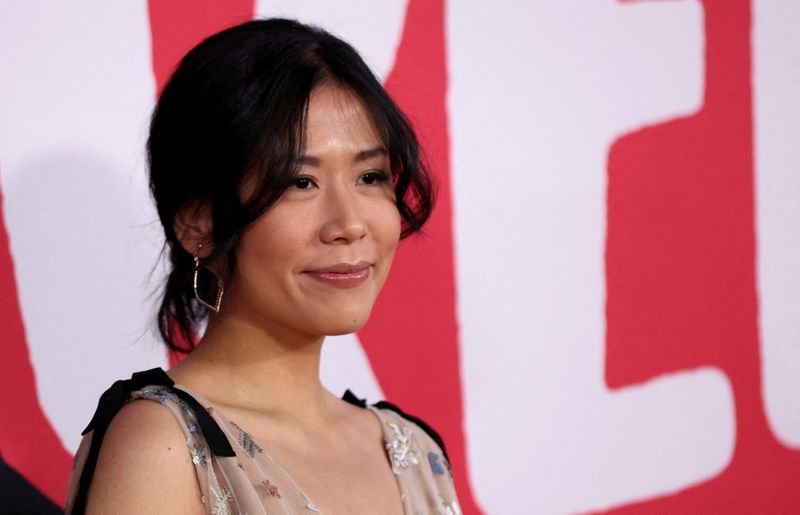
Shi, now 32, stayed true to her own message with the new coming-of-age tale ‘Turning Red’, out in the UAE on March 10, which is another history-making project for her as she’s the first woman in Pixar’s over three decade history to direct a film solo.
The movie, set in 2000s Toronto, follows the life of Chinese-Canadian 13-year-old Meilin ‘Mei’ Lee, who falls headfirst into the messy onset of puberty — arguments with her mum, crushes on boys and frustrations with every single thing in life. What she doesn’t see coming is that whenever she’s angry or stressed out she magically poofs into a giant red panda.
“So I start I started working on ‘Turning Red’ in 2017, that was when Pixar approached me and asked if I could pitch three ideas for a feature film,” Shi said in a roundtable interview with Gulf News. “Surprisingly, ‘Turning Red’ just like popped into my mind instantly like a dandelion on the sidewalk. There’s something so autobiographical and specific about this girl going through magical puberty that I was just like, I need to make this movie somehow.”
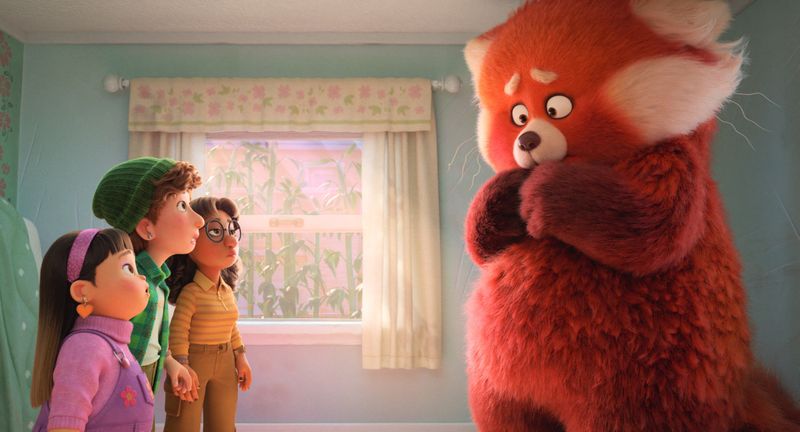
When Shi pitched the movie to Pixar, she wasn’t sure that they would understand her story.
“I thought it was I thought was gonna be a challenge because I was going to be pitching to a bunch of old white dudes — like ‘hey, a girl going through puberty, please invest in it.’ But I think people were drawn to that very universal theme of the awkwardness of being 13, of waking up one day and your body and your emotions are just changing and roiling around inside of you. I think that’s what drew Pixar to supporting this movie. Also just the animation potential of it and seeing this giant, furry, cuddly red panda coming to life and dancing and twerking across the screen. It was just it was irresistible,” she said.
Blending cultures
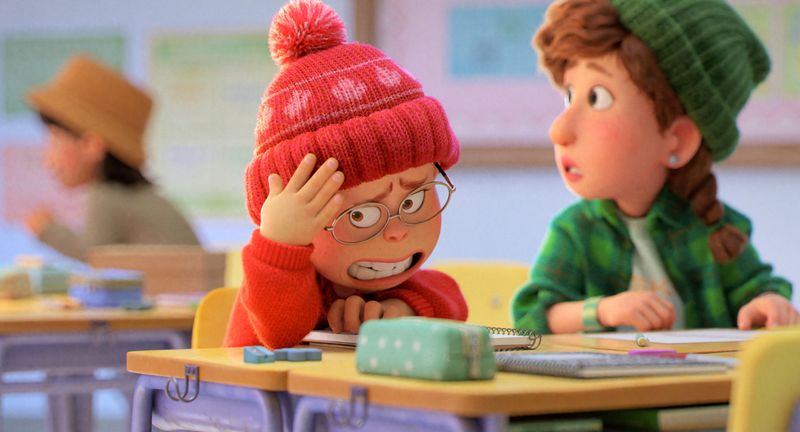
The visuals of the film are neon-bright and joyous, and reflect a style that Shi calls ‘chunky cute’. It’s also a testimony to Shi’s love for Japanese anime and the legendary Studio Ghibli founder Hayao Miyazaki. “It just made sense that the style is kind of like a mishmash of East and West... from the very beginning we wanted the style to feel unique and special and different, and nothing like anyone has ever seen before,” the director said.
‘Turning Red’ features the voice talents of newcomer Rosalie Chiang as Meilin, veteran actress Sandra Oh as her overbearing mum Ming Lee, and actresses Ava Morse, Maitreyi Ramakrishnan and Hyein Park as Meilin’s loyal and loving troupe of friends.
Shi strongly believed in portraying the metamorphosis of puberty in a positive light, offering girls representation that has never been seen before in a Pixar movie.
“One of the reasons why I wanted to make this particular movie was to show girls like myself at that age that all of these changes that are happening inside of you are totally okay and normal, and everyone goes through with it,” Shi said. “I love Mei... I love that she learns to just embrace all of these differences and changes that are happening to her and she doesn’t want to let it go. I think that’s such a great message for all kids, but especially girls who are told to be small and hairless and emotionless.”
Expanding on diversity
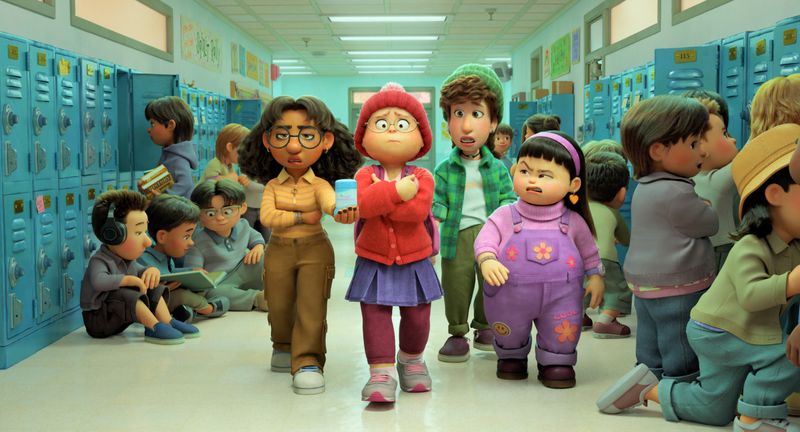
Pixar and Disney have been telling multicultural stories for years now, and have seen major success with films about people of colour, such as ‘Encanto’, ‘Coco’ and ‘Raya and the Last Dragon’. ‘Turning Red’ is one such brilliant venture that focuses on Chinese culture and the diaspora in Canada.
During the making of the movie, Shi and producer Lindsey Collins made sure to get all their facts straight in order to correctly portray the characters and their background.
“We tried to go our homework and depict the Chinese community in as authentic of a way as possible,” Shi said. “I drew from my own background growing up in Toronto, Canada, in the immigrant community there, but it was also important for us to get different perspectives... we consulted with a bunch of cultural consultants from the Toronto Chinatown community... professors and masters in like religious studies.”
Collins added: “Outside of our crew, we bring in people and talk about costumes and outfits and jewellery... all of those things, so that we could be just at least aware of what we didn’t know. And so we knew how to ask hopefully the right questions.”
Celebrating mum-daughter relationship
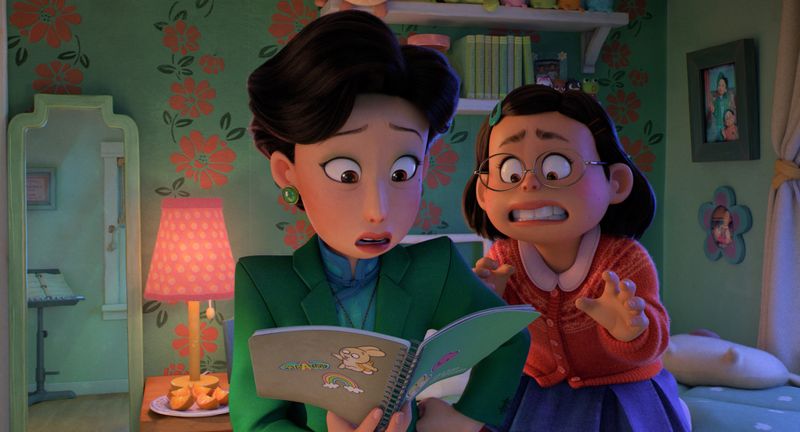
Shi and Collins approached the relationship between the feisty Meilin and her even feistier mum Ming from different perspectives — the director reflected on her bond with her mum at that age, while producer Collins saw it through the lens of being a mother.
“I think it was pretty similar to Mei and her relationship with her mom through the movie,” Shi said. “I started off very, very close with her. We were joined at the hip. I was like her little mini-me and we would do everything together. But then there’s that point in puberty like where everything changes, my emotions are changing, I’m changing as a person, I’m getting new interests. And all of a sudden I was clashing with her every single day. I was moody. And this movie is an excuse to kind of revisit that time and dig a little bit deeper and understand why.”
“On this film, I probably had much more of the perspective of being a mom of teens. I have three teens in my life,” Collins said. “So I was kind of bringing the perspective of like how frustrating as a mom it is to be dealing with teenagers. I had a newfound respect for my parents going through it.”
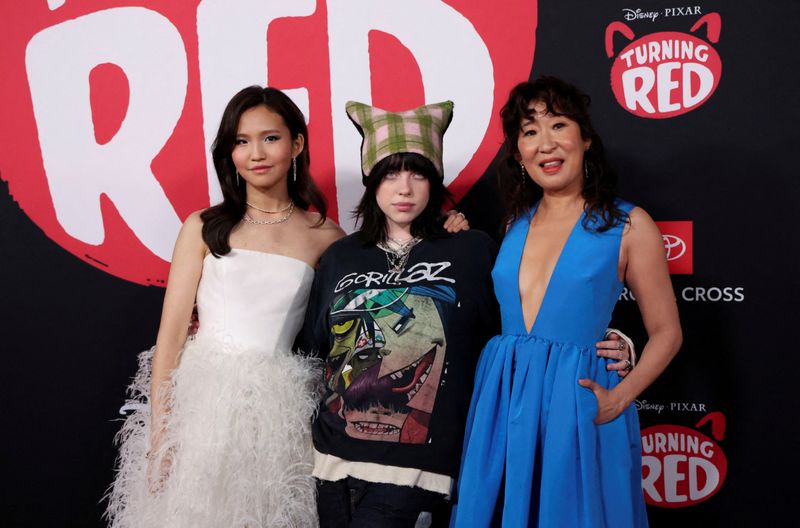
For actress Sandra Oh, who voices Ming, growing up as an opinionated person with a ‘tiger mum’ led to some friction.
“I love my mom... she’s a fierce, fierce person. Tiny. But fierce,” Oh said. “I actually have something that I posted a very long time ago on Instagram. Because it was such an unbelievable quote that my mom said in the kitchen... she said — I’m not joking — ‘If only you were neater, I would love you more.’”
The ‘Killing Eve’ actress admitted that they have a good relationship, adding: “I can’t stop her from being herself... I’m not gonna do what she wants me to do because that’s just not me.”
The movie hit close to home for lead star Rosalie Chiang for others reasons.
“After watching the movie, my mom and I kinda looked at each other like, ‘This is really similar,’ Chiang said. “It’s like, there’s so many odd, like, really weird coincidences. First of all, my mom’s middle name is Ming. There’s no way they could’ve known that... my favourite animals are actually red pandas... But the main thing is that my mom actually calls me Mei-Mei before this project, because Mei-Mei means little sister in Chinese.”
True female friendship
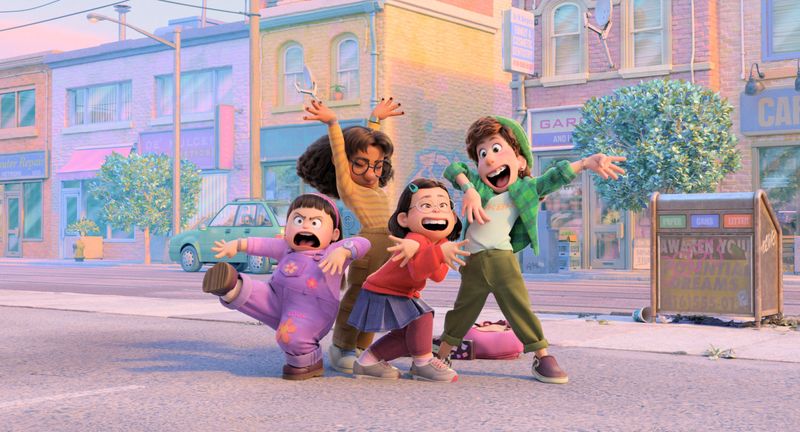
One of the themes that runs through ‘Turning Red’ is the strong bond that Meilin has with her girl friends — one that’s untainted by negative stereotypes such a backbiting, cattiness and jealousy. The funky foursome are dorky, hardworking and good-hearted, and they share a common love for the fictional boy band 4*Town (whose songs in the movie were partly written by singer-songwriters Billie Eilish and Finneas O’Connell).
Hyein Park, who plays Abby, said: “This movie was very relatable for me [because of] all those aspects of being goofy together as friends, where you can truly be yourself... Throughout my very ripe age whenever I had the hardest time, those are the things that push me through and help me through, when I have those friends to be just be myself, cry, or be super-goofy.”
Ava Morse saw herself in her character Mariam, saying: “All my friends mean so much to me... I think I was really inspired by my own friends, kind of putting them into Miriam herself, because she is such a supportive friend to Mei-Mei and the other girls.”
Maitreyi Ramakrishnan, who plays Priya, said that the movie is a chance to rewrite old tropes about what a girl gang should be.
“I think with TV and film, we always portray that your love interest is the one that you should be closer with. That always made me sort of sceptical, because wouldn’t the childhood best friend know you better?” she said. “Growing up... if you don’t have that, you can then get all the lovely internalised misogyny where you’re like, ‘Oh, yeah, I only like hanging out with guys because girls are, like, so dramatic.’ So it’s so awesome that we have this in ‘Turning Red’ between the four girls because now my little cousin gets to see, like, yeah this is the kinda girl gang you want.”

Quote/Unquote
Domee Shi on why she picked a red panda as the magical creature: “The reason why red panda because I feel like the red panda just visually represents puberty in a really, really clear way. It’s big, it’s awkward, it’s hairy. And the colour red itself just is symbolic of puberty, right? It’s menstruation. It’s all the emotions that surge for you at that time... It just popped into my head — like what if this girl uncontrollably just poofed into this giant, red hormonal animal every time she got emotional?”
Don’t miss it!
‘Turning Red’ releases in UAE cinemas on March 10.



